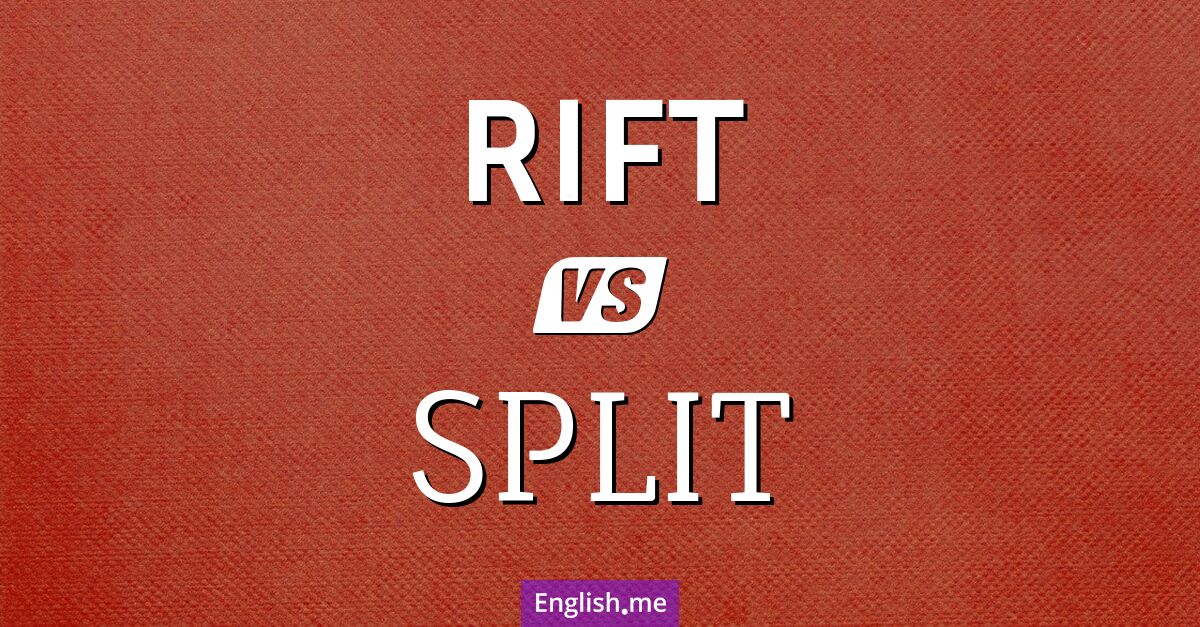"Rift" and "split": bridging the divide between the words
Reviewed and edited by  Lloyd Cooper 14/10/2024, 21:06
Lloyd Cooper 14/10/2024, 21:06
English.me team member

 What is similar?
What is similar?
Both "rift" and "split" refer to a division or separation between two or more things. They can be used in both physical and metaphorical contexts to describe a break, fracture, or disagreement.
 What is different?
What is different?
"Rift" often implies a deeper or more serious separation, particularly in relationships or opinions, and can suggest a more emotional or lasting divide. "Split" is more general and can refer to any division or separation, whether physical, such as a split in a piece of wood, or abstract, such as a split decision. "Split" is also often used as a verb, whereas "rift" is primarily a noun.
 Which one is more common?
Which one is more common?

 Examples of usage
Examples of usage
Rift- There was a growing rift between the two former allies.
- The rift in the rock was large enough to climb through.
- Over time, the rift in their friendship became impossible to mend.
- They decided to split the bill equally among themselves.
- The party split into two factions over the issue.
- A split decision by the jury resulted in a mistrial.

 English
English español
español française
française italiano
italiano deutsche
deutsche 日本語
日本語 polski
polski česky
česky svenska
svenska Türkçe
Türkçe Nederlands
Nederlands